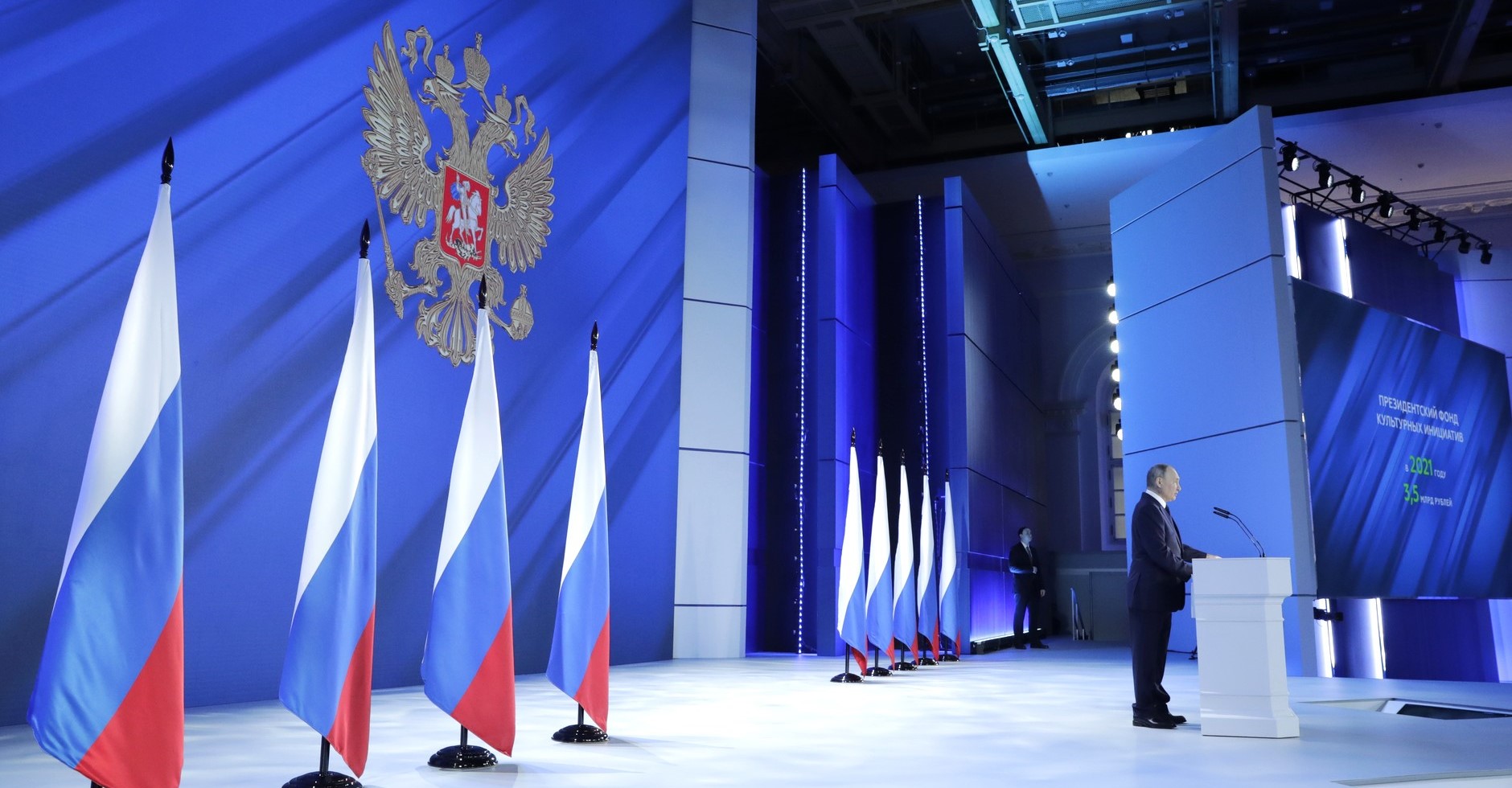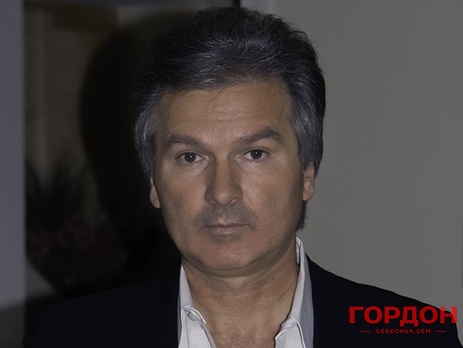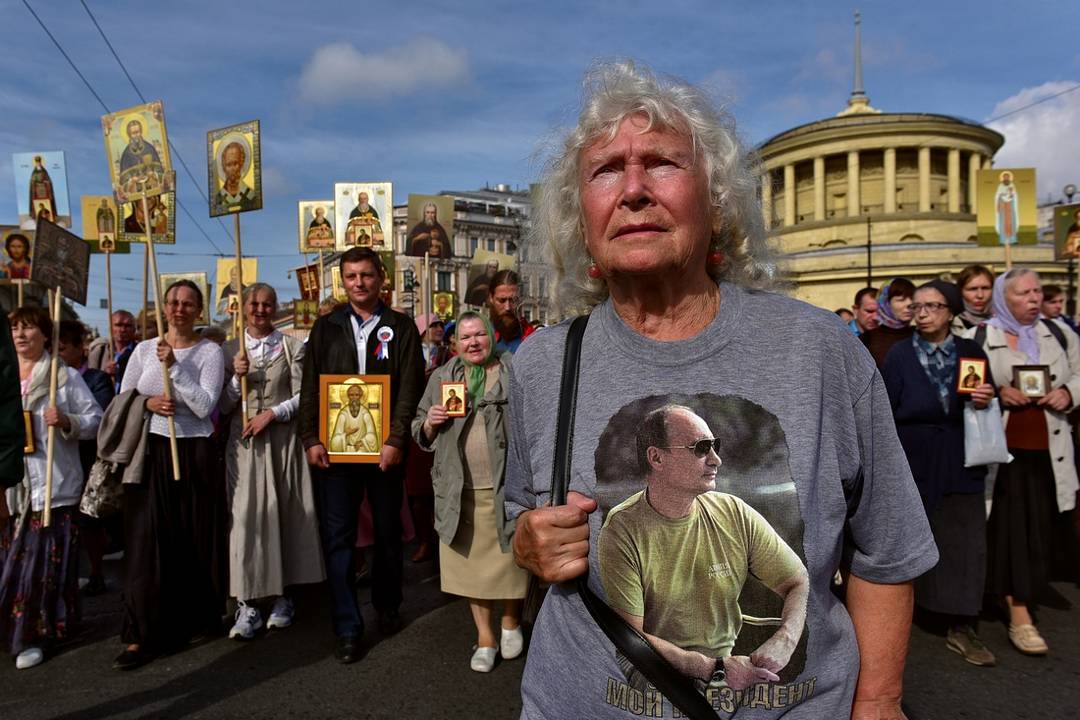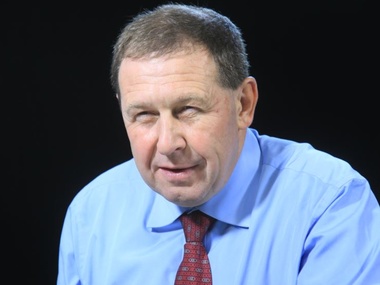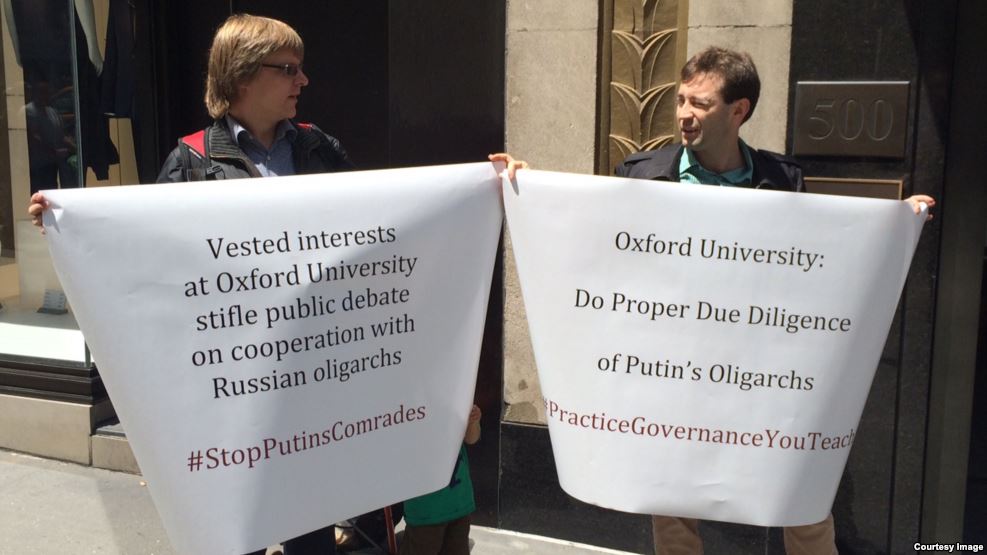The first glazed-over item on this list is the sharp escalation of the Ukraine crisis caused by the massive, weeks-long concentration of Russian troops on its borders (Nezavisimaya Gazeta, April 21). A day after Putin’s speech, Defense Minister Sergei Shoigu announced that those purportedly snap exercises were completed and the assembled battalion groups would be returning to their bases—which most observers took for the clear sign the Kremlin was seeking to de-escalate tensions (Republic.ru, April 22). The declaration may, however, be just an attempt to hide Moscow’s real intentions (VTimes, April 23). Many experts pointed out that the movement of Russian troops in the last few weeks was demonstratively open, without the usual measures of maskirovka, or camouflage (The Insider, April 9). Shoigu’s order, in contrast, potentially provides an actual cover-up; and the battalions, which have left most of their heavy equipment in the temporary camps, can quickly return to those forward positions if the ongoing gunfights in the Donbas war zone were to suddenly become kinetic (Kommersant, April 23).
The decision to reduce the pressure on Ukraine—even if perhaps temporarily—was part of the complicated exchange of signals between Moscow and Washington, which elevated Russia’s international profile to the level it feels entitled to (Carnegie.ru, April 14). Putin duly participated in the April 22 global climate summit organized by United States President Joseph Biden, even if the Kremlin leader had nothing to contribute. But he is much more interested in the proposition for a bilateral summit (Moscow Echo, April 23) and wants to focus the desired conversation on issues of strategic stability. This would allow Russia to capitalize on its assertive development of “new-generation combat systems,” proudly mentioned in Putin’s address last week (RIA Novosti, April 21). This presumed leverage, the Kremlin expects, should help neutralize the threat of further US sanctions that have started to target Russia’s financial system (RBC, April 24).
Another new round of sanctions is looming, however, and the State Department notified the Russian charge d’affaires in Washington about this development (Interfax, April 24). The cause is the explosive scandal in Russia’s relations with the Czech Republic (Czechia), to which Putin referred only elliptically in his address (see EDM, April 22). The investigation into the act of sabotage at the Vrbetice ammunition depot on October 16, 2014, produced solid evidence of involvement of Russian military intelligence (GRU), compelling the Czech authorities to take punitive measures. Russia opted to respond to the expulsion of 18 diplomats from Prague by ousting 20 from Moscow, and it rejected the demand to reconsider; consequently, the Russian foreign ministry must now deal with a mandated reduction of the staff of its embassy to a level equal with the Czech embassy in Russia, where only seven diplomats remain (Svoboda.org, April 22). The planned retribution reportedly will also involve economic sanctions, including a ban on the import of Czech beer (Kommersant, April 24). The North Atlantic Treaty Organization (NATO) and the European Union declared their full support to Prague’s position, so Russian sanctions will test this solidarity. Yet Slovakia, Estonia, Latvia and Lithuania (and earlier Poland) have already announced expulsions of Russian spies/diplomats (Meduza, April 22). Russia cannot possibly win this stand-off, but it needs to follow through on Putin’s promise of “asymmetrical, swift and tough” responses to hostile acts (Izvestia, April 22).
Perhaps the most glaring omission in Putin’s address was the process of integration with Belarus, which was beginning to resemble a looming hostile corporate takeover (Rosbalt, April 21). The visit of President Alyaksandr Lukashenka, who maintains his control over Belarus in part through brutal police power, was scheduled for the day after Putin’s performance before the joint session of parliament, presumably in order to ratify the de facto annexation, but nothing of any significance was actually agreed at this meeting (Carnegie.ru, April 19). The only breaking news was the alleged break-up in Moscow of a dubious conspiracy to assassinate Lukashenka, and it was the only paragraph in the national address that Putin read with some passion (Novaya Gazeta, April 24). Russian security services have a long tradition of inventing phantasmagoric plots, but they are certainly capable of removing a foreign leader dependent on Moscow should he become stubborn or merely inconvenient (Grani.ru, April 22). It is probably the depth of the economic crisis in Belarus and the costs of incorporating that nine-million-person country into Russia that dissuaded Putin from progressing with a “historic reunification” (Nezavisimaya Gazeta, April 19).
Read More:
- Putin may have pulled back from Ukraine border but he did not back down, experts warn
- Moscow pushing even more expansive claims on Arctic
- Zelenskyy seeks a summit with Putin again
- Four lessons learned from Russia’s Ukraine buildup
- Deconstructing Putin: it is time the West learned to be bold
- Russia effectively seizes control of Sea of Azov, threatening Ukraine
- NATO prepares to attack, says Kremlin propaganda amid record Russian troop buildup at Ukraine border
- Putin’s aggression against Ukraine part of broader effort to destroy international rules of the game and force West to recognize his right to do so, Skobov says

